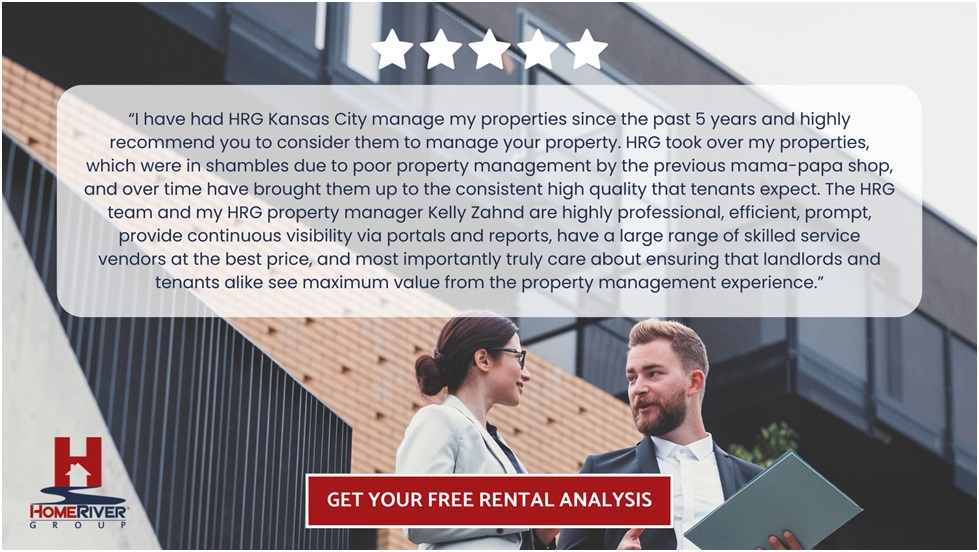
Key Takeaways
- Know The Local Market: Understanding local rental market dynamics, including location, property condition, and market trends, is essential for setting the right rental rate in Houston.
- Competitive And Value Pricing: Employing both competitive and value pricing strategies helps attract the right tenants and maximize rental income based on property uniqueness and market conditions.
- Consider Common Pitfalls: Factoring in common pitfalls and leveraging professional property management advice ensures sustained occupancy and optimal pricing.
Houston Rental Pricing Strategies: How To Set The Right Rate
At HomeRiver Group, our understanding of the Houston market, commitment to exceptional service, and local expertise uniquely position us to help you optimize your rental pricing strategy. With HomeRiver Group's profound expertise and innovative approach to property management, we are here to guide you through the complexities of rental pricing in the Houston market.
In the dynamic and ever-evolving Houston rental market, setting the right price for your rental property is crucial. The competition is fierce, and the stakes are high. Whether you are a seasoned investor or a newcomer in property rentals, understanding how to price your rental in Houston can make the difference between maximizing income and having your property sit vacant.
Through this guide, we explore the strategies and insights necessary to confidently price your rental property, ensuring it continues to yield high returns while maintaining a competitive edge.
Understanding The Houston Rental Market
When determining how to price your rental in Houston, it's crucial to have a profound understanding of the local rental market. As a vibrant and ever-growing metropolis, Houston presents a dynamic real estate landscape that requires local insights and national expertise to navigate effectively.
Houston's rental market is influenced by several factors, including economic growth, demographic trends, and the city's appeal to both professionals and families looking for quality living options. As a result, the demand for rental properties in Houston is consistently high, but so is the competition among landlords.
To set the right rate for your rental, it's important to consider the following:
- Location: Properties in areas with easy access to employment centers, good schools, and amenities like shopping and restaurants can command higher rents.
- Property Condition: Well-maintained and updated properties are more attractive to potential renters and can justify a higher rental rate.
- Market Trends: It is essential to understand the broader market trends, such as average rental rates for similar properties, vacancy rates, and seasonal variations in demand.
- Regulatory Environment: Like many large cities, Houston has specific rules that landlords must adhere to, and staying informed can help avoid costly violations.
Key Factors Affecting Rental Prices In Houston
Several key factors come into play when determining the price of your rental in Houston. Understanding these elements is crucial for setting a competitive and fair market rate.
Here are the key factors that influence rental prices in Houston:
1. Location
Location is one of the primary factors affecting rental prices anywhere, and Houston is no exception. Properties in desirable neighborhoods, near top schools, shopping centers, or within easy access to public transportation generally command higher rents. Consider your property's location specifics, including any local amenities or attractions that could justify a higher price point.
2. Property Condition And Features
The condition of your property and its features significantly impact how much you can charge for rent. Modern, well-maintained units with upgrades like stainless steel appliances, hardwood floors, and smart home technology can attract higher rents. Evaluate your property's condition honestly and consider any improvements that could enhance its value.
3. Market Supply And Demand
Rental markets are dynamic and driven by the fundamental economic principles of supply and demand. In Houston, as in any city, periods of high demand paired with low supply can lead to increased rental prices, while an oversupply of available properties could drive prices down. Stay informed about the current market trends in Houston, including any developments or changes that may affect demand, such as new employment opportunities or infrastructural improvements.
4. Comparable Rentals
Comparing your property to similar rentals is reliable for setting a competitive rate. Look at properties with similar sizes, features, and locations to determine a price range. HomeRiver Group excels at this comparative market analysis, leveraging our local expertise and extensive database to price your rental accurately.
5. Economic Conditions
The broader economic conditions in Houston and the nation can influence rental prices—factors such as employment rates, inflation, and the economy's overall health play a role. For example, a booming economy might mean people are willing to pay more for rent, whereas tenants might look for cheaper options during economic downturns.
6. Regulations
Be aware of local housing regulations or rent control measures that might affect your rental price. Regulations can vary significantly from one area to another, so staying informed about the rules governing rental properties in Houston is essential.
Assessing Your Rental Property's Value
When venturing into the rental market in Houston, determining the right price for your rental property is pivotal. This ensures competitive positioning and maximizes your return on investment.
Analyzing Houston's Market Conditions
Analyzing the current market conditions in Houston is essential. This includes understanding the demand for rentals in your property’s neighborhood, the average rental rates, and the features offered by these properties. Keeping abreast of economic trends and forecasting future market directions are crucial steps.
Evaluating Your Property’s Features And Amenities
Evaluating your property’s specific features and amenities plays a pivotal role. Properties with recent upgrades, such as modern appliances, smart home features, and sustainable energy solutions, can command higher rental rates. Your property's size, layout, condition, and proximity to local amenities, transportation, and schools significantly influence its valuation.
Utilizing Technology For Comparative Market Analysis (CMA)
To objectify these assessments, we at HomeRiver Group excel in leveraging technology for comparative market analyses (CMA). Our unified national platform allows us to draw on a vast database and compare your property against similar ones in the market. This equips us with the data needed to set a rental price that reflects your property’s true value while being attractive to your target audience.
Adopting A Dynamic Pricing Strategy
We also recommend employing a dynamic pricing strategy that adapts to seasonal demand fluctuations. Understanding when demand is at its peak and adjusting prices accordingly can lead to higher occupancy rates and increased rental income.
Competitive Pricing vs. Value Pricing
When setting the right rental rate for your Houston property, two predominant strategies emerge Competitive Pricing and Value Pricing. Understanding the nuances of these strategies will empower you to make informed decisions that maximize your rental income while ensuring your property remains attractive to potential renters.
Competitive Pricing
Competitive Pricing focuses on setting rental rates in line with—or slightly below—the market average for similar properties in your area. This approach is efficient in a highly saturated market, where standing out among a sea of available rentals is crucial.
By pricing your rental competitively, you target a wider audience and aim to increase occupancy rates quickly. This strategy is beneficial during periods of high rental inventory or when aiming to fill vacancies swiftly. However, conducting thorough market research is essential to ensure your pricing accurately reflects the current market conditions. Collecting data on similar listings, amenities, and occupancy rates will solidify your pricing strategy.
Value Pricing
Value Pricing, on the other hand, focuses on highlighting your property's unique attributes and amenities that justify a higher rental rate than the market average. This strategy leverages your property's distinct characteristics—recent upgrades, prime location, or exclusive amenities—to appeal to renters willing to pay a premium for these features.
Implementing a value pricing strategy requires a keen understanding of your target market and what they value most in a rental. It's about creating a compelling value proposition that differentiates your property from others. This could involve investing in property improvements, offering flexible leasing terms, or including utilities and services as part of the rent.
Avoiding Common Pitfalls In Rental Pricing
When navigating Houston's competitive rental market, it is crucial to avoid common pitfalls that can hinder your ability to set the right rental price. At HomeRiver Group, we leverage our extensive national experience and deep local market expertise to guide you through these potential obstacles.
Misjudging The Market Demand
One of the most significant mistakes property owners make is misjudging market demand. With its dynamic economy and population growth, Houston is subject to fluctuations in housing demand. Understanding the current market trends and how they affect rental demand in your area is essential. Making data-driven decisions based on comprehensive market analysis will position your property competitively and attractively.
Overlooking Property Unique Features
Each property has unique features and amenities that considerably influence its rental value. Overlooking these can result in undervaluing or overvaluing your property. Features such as upgraded interiors, accessibility to local amenities, additional security features, outdoor space, and community facilities like pools and gyms should all be considered.
Setting Rigid Prices
Adopting an inflexible approach to rental pricing can be a deterrent in today’s market. The Houston rental landscape requires agility and adaptability. A property priced too rigidly may fail to attract renters in a competitive market, leading to prolonged vacancies. It’s essential to remain open to adjusting your rental rates based on seasonal trends, market demand, and feedback from potential renters.
Ignoring Tenant Turnover Rates
High tenant turnover rates can be a red flag, indicating issues with your property's pricing. If renters consistently choose not to renew their leases, it may be time to reevaluate your pricing strategy. Factors causing high turnover might include pricing above market rate, failing to offer competitive lease terms, or neglecting property maintenance and upgrades.
Disregarding Professional Property Management Advice
One of the biggest pitfalls in rental pricing is underestimating the value of professional property management advice. HomeRiver Group’s promise of exceptional service with local expertise means providing actionable, data-supported guidance on successfully pricing your rental in Houston. Our experts are well-versed in the subtleties of the local market and can offer insights that prevent pricing mistakes before they occur.
Final Thoughts
Determining how to price your rental in Houston requires a strategic approach that balances market demand with your investment goals. At HomeRiver Group, we understand that your property is a valuable asset, and our priority is to help you achieve the best return on your investment through our exceptional service and local expertise. We comprehensively analyze the current market trends, competitive rental rates, and your property's unique qualities to ensure your rental is priced optimally.
In the dynamic Houston rental market, staying informed and adaptable is crucial. By partnering with HomeRiver Group, you benefit from our vast resources and expertise in asset management, operational efficiency, and market analysis. Our unified approach guarantees you set the right rental rate and attract and retain tenants, maximizing your property's potential.
Read also:
- What Is The Maximum Rent Increase Allowed In Texas?
- A Guide To Landlord Responsibilities In Texas
- 5 Things A Landlord Cannot Do In Texas
Frequently Asked Questions About How To Price Your Rental In Houston
What factors should I consider when setting rental prices in Houston?
When pricing your rental in Houston, consider the property's location, size, condition, and unique features. Market demand and comparable property prices are also crucial. Balancing competitiveness and reflecting the true value of your property is key.
How does the local Houston economy affect rental pricing?
Houston's economy affects rental pricing through employment rates and business growth. Strong economic activity boosts demand for housing, raising rents, while downturns can lower demand and push rates down. Staying updated on local trends helps you adjust pricing strategies.
How do I perform a comparative market analysis for my Houston rental?
Research similar recently listed or leased properties in your area to perform a CMA. Focus on key attributes like size, amenities, and condition. Using online tools or partnering with property managers like HomeRiver Group can help you gather accurate data for pricing.
What amenities can justify higher rental rates in Houston?
Modern appliances, updated interiors, in-unit laundry, and smart home features can justify higher rental rates. Access to community amenities like pools, fitness centers, and secure parking can also boost a property's rental value.
How do seasonal fluctuations impact rental rates in Houston?
Rental demand peaks in spring and summer, allowing for higher pricing. Fall and winter often see a drop in demand, requiring more competitive rates. Adjust your pricing strategy based on the season to match market trends.
Should I adjust rental prices for longer lease terms in Houston?
Offering slightly reduced rates for longer leases can attract stable tenants, reducing turnover and vacancy costs. This strategy provides consistent rental income and lowers maintenance and marketing expenses.










